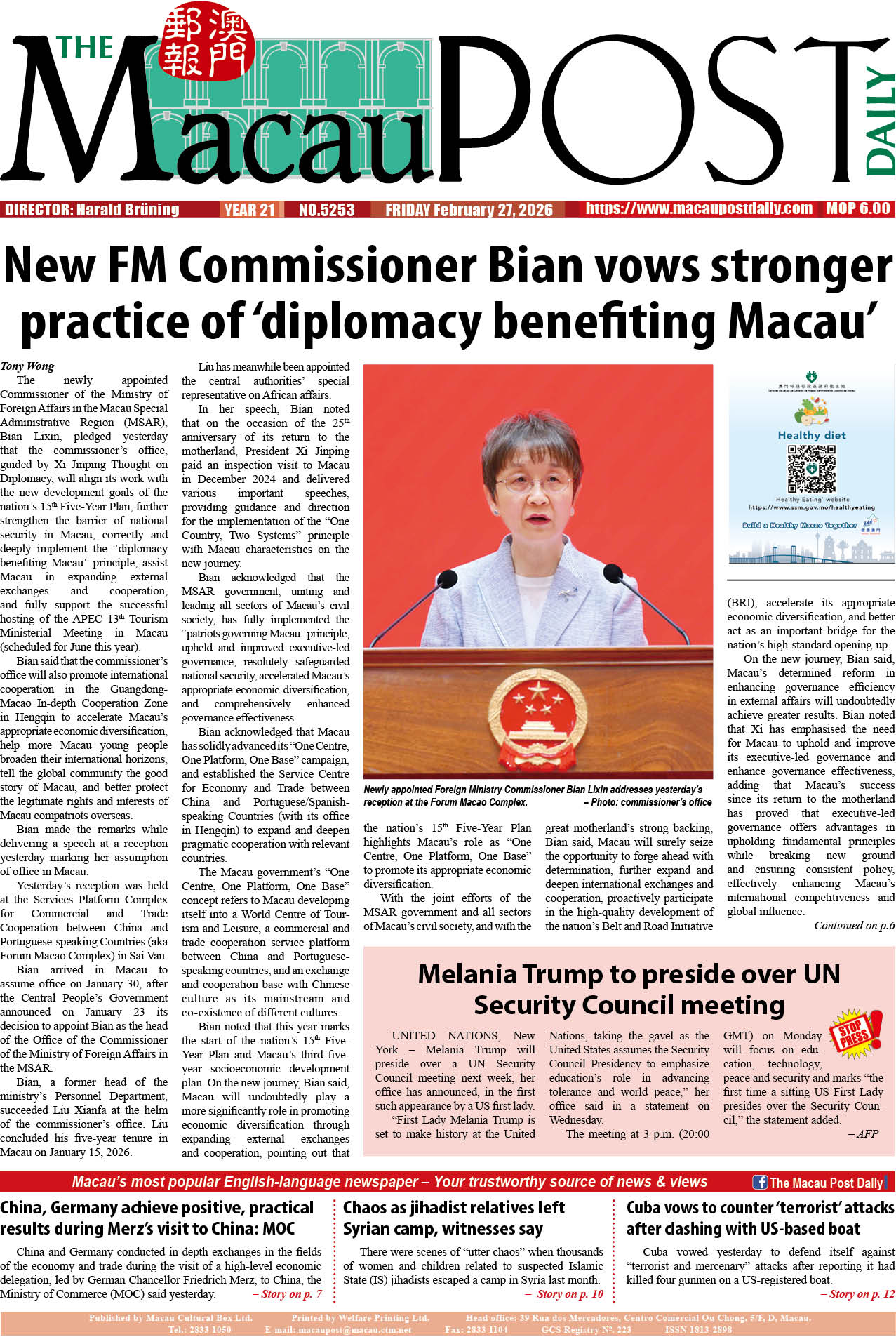Harald Brüning
I have been contacted by several readers – who happen also to be my friends including a local sinologist – about the quote that preceded yesterday’s editorial headed “Mature enough for reflection”.
The quote attributed to Confucius reads: “By three methods we may learn wisdom: First, by reflection, which is noblest; second, by imitation, which is easiest; and third by experience, which is the bitterest.”
I received the quote from a former Hong Kong University classmate last year. As I am not a sinologist and my knowledge of Chinese is rudimentary, I took it at face value.
Prof. Hans-Georg Moeller of the University of Macau’s Department of Philosophy and Religious Studies referred me to the following online discussion about the quote: https://warpweftandway.com/time-sensitive-question-re-confucius-quote/.
According to the online discussion, which took place between March and August 2016, there are doubts about the quote’s authenticity. The discussants raised various issues such as that the quote’s anonymous translator may have taken “great literary liberties”, while another described it as a “random saying attributed to Confucius”, adding: “The earliest source for the quotation available through a Google books search is an 1893 ‘Dictionary of Quotations’ compiled by one Rev. James Wood.” Another discussant wrote he believed that “this is a free paraphrase made by an earlier western learner of Ruism [Confucianism] in regard to Analects 16:19. He may connect ‘生而知之’ with ‘温故而知新’, so it is to learn by reflection; ‘学而知之’ with ‘三人行必有我师’, so it is to learn by imitation; ‘困而知之’is construed as learning through difficult situation, so it is to learn by experience.”
A philosophy professor in Taiwan contacted by The Macau Post Daily yesterday about the quote suggested that what Confucius actually said was 孔子曰:「生而知之者,上也;學而知之者,次也;困而學之,又其次也;困而不學,民斯為下矣。」——《論語・季氏篇》According to the English translation on ctext.org/analects/, Confucius said, “Those who are born with the possession of knowledge are the highest class of men. Those who learn, and so, readily, get possession of knowledge, are the next. Those who are dull and stupid, and yet compass the learning, are another class next to these. As to those who are dull and stupid and yet do not learn – they are the lowest of the people.”








